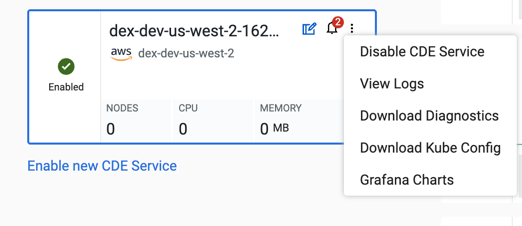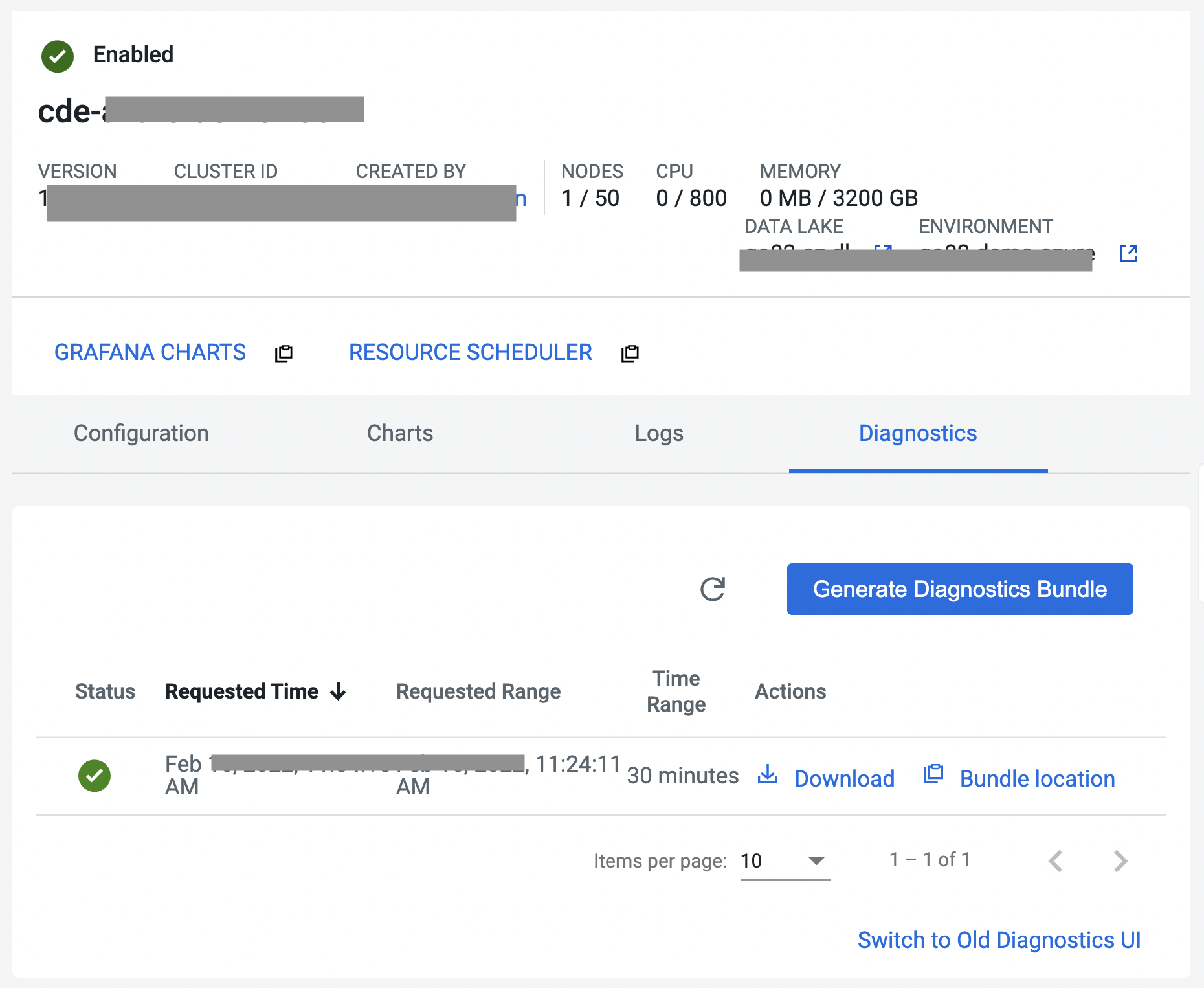Downloading summary status for Cloudera Data Engineering
This section describes how to download a summary status of a Cloudera Data Engineering Service in Cloudera using Cloudera Data Engineering UI.
To get a current snapshot of the current Cloudera Data Engineering infrastructure status (cloud resources, Kubernetes pod statuses, pod events and service metadata). This summary status, in the form of a ZIP file, is downloaded to your computer. This is available on both AWS and Azure environments.
Required Role: DEAdmin
After granting or revoking the role on the environment, run the Sync Users to FreeIPA environment action.
When you extract the Summary Status ZIP file that you downloaded from Cloudera Data Engineering UI, you can see the directories that contain files in JSON format.
Below is an example of format of the Zip file for Summary Status:
cde-service-diagnostics-{clusterID}-{timestamp}/
cluster.json # output from cluster describe
cluster-events.json # output from get cluster events
cloud-diagnostics.json # cloud resource status (RDS, EFS, EKS, LB, ...)
instances/
{id}.json # output from instance id describe
{id}-events.json # output from get instance id events
kubernetes/ # kubernetes resource status for all relevant objects and namespaces
nodes.json
{namespace}/
namespace.json
pods.json
events.json
deployments.json
replicasets.json
services.json
daemonsets.json
{namespace}/
namespace.json
pods.json
events.json
deployments.json
replicasets.json
services.json
daemonsets.json
...
 to see a drop down menu, and
select
to see a drop down menu, and
select 

